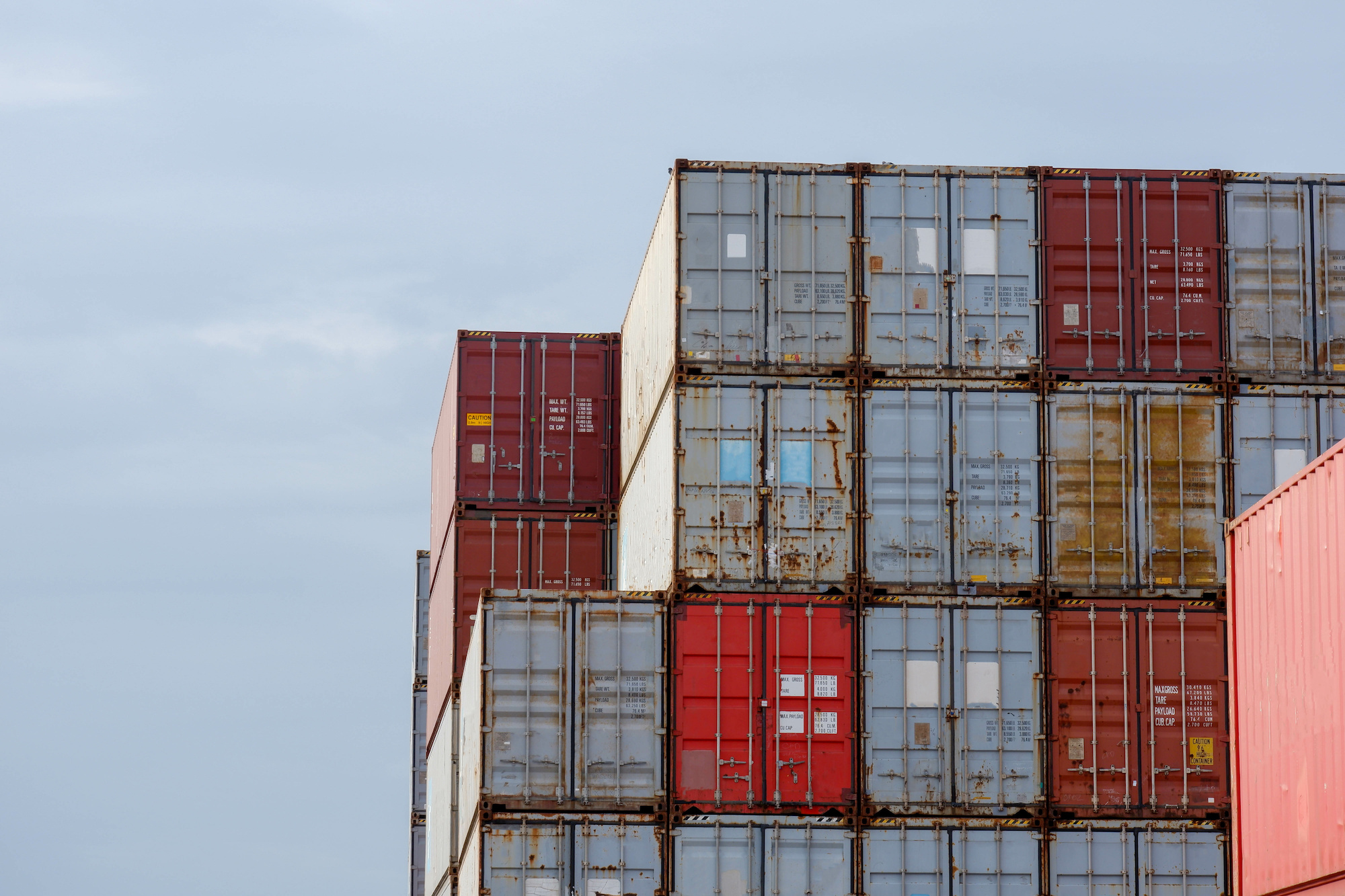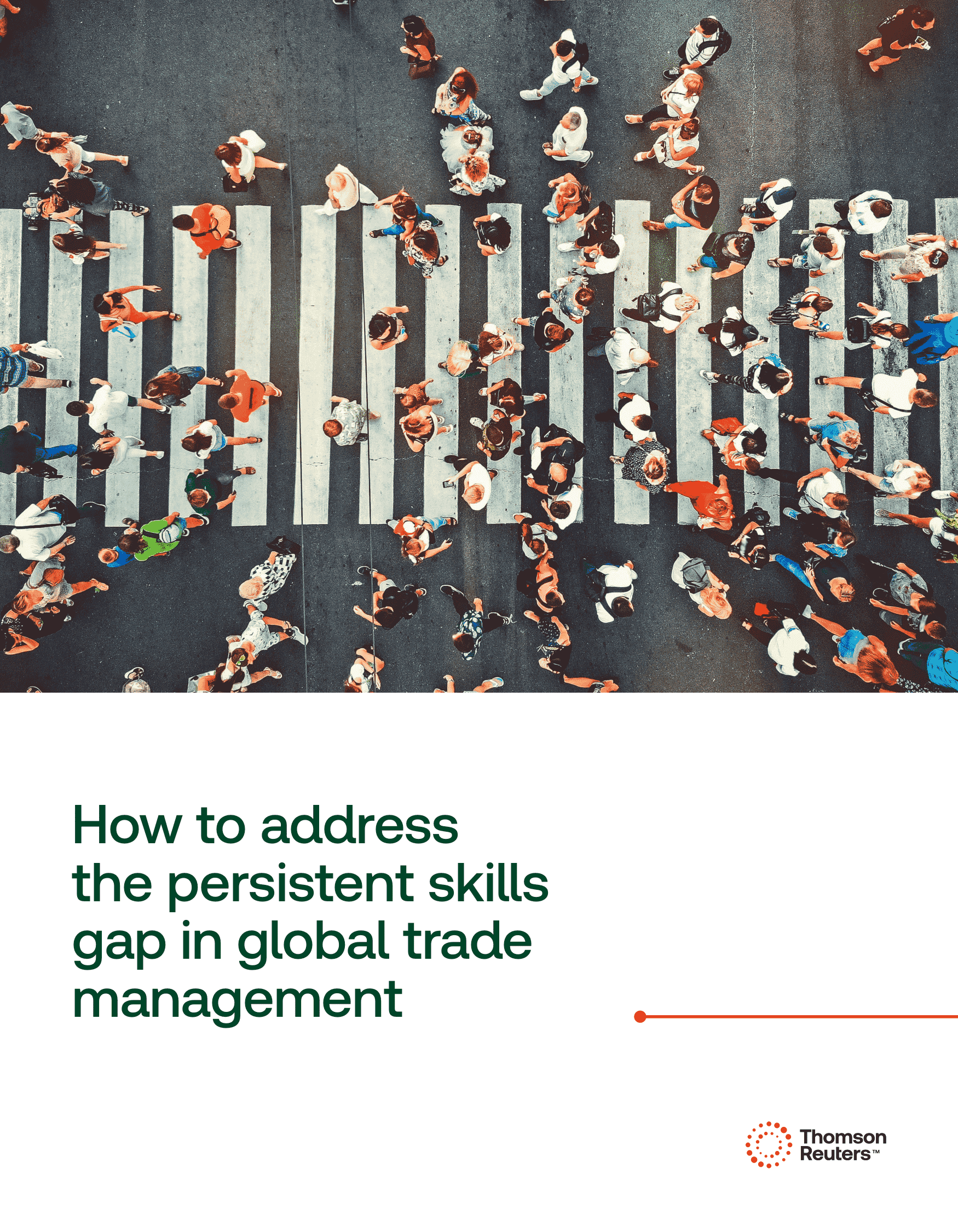Multinational companies the world over face an increasingly common problem—namely, they are finding it difficult to hire people with the skills and experience needed to fill many key global trade management positions.
This fact was revealed in the Thomson Reuters® Institute (TRI) Global Trade Report 2023, where 33% of the companies surveyed continue to be understaffed and 53% have plans to actively recruit for new roles in global supply chain management. 37% of respondents also said they are considering outsourcing to fill these skills gaps because they cannot find the talent that they need in the open job market.
To address this important issue, Thomson Reuters Institute has developed a white paper entitled “How to address the persistent skills gap in global trade management,” which explains why the pipeline for global trade talent isn’t producing enough qualified people, and offers several strategies for dealing with the problem, both in the short term and long term.
Jump to ↓
Change drivers in global trade management
Common skills gaps amongst global trade specialists
More technology in job profiles
Industry action strategies within global trade
Change drivers in global trade management
As the paper explains, the skills gap in global trade management is the result of two main factors, which, when combined, constitute a paradigm shift that is changing the skillset needed to be an effective global trade professional.
The first factor is the growing complexity and volatility of global trade. Geopolitical instabilities, scarcity in the supply chain, regulatory changes, sanctions, labor unrest, legal tussles, and rising fuel costs—these are just a few of the issues that global trade professionals must deal with on a regular basis, and there are many more. This rapid expansion of job responsibilities has resulted in a need for people with an equally expansive resume of skills and aptitudes in these and other areas.
The second major driver of this skills gap is the influence and adoption of technology at almost every level of global trade. Communication between corporations, governments, and customs authorities is now conducted entirely by interlinked computer systems, and almost every aspect of trade—e.g., customs compliance, screening for sanctions and denied parties, monitoring regulatory changes, managing free-trade agreements (FTAs) and foreign-trade zones (FTZs), —is now governed and managed using various types of specialized software.
Generative AI is set to streamline trade compliance processes by automating tasks like generating trade documents. This automation reduces the time and resources needed for trade compliance documentation, leading to faster processing and fewer errors. The use of generative AI software is becoming a necessary skill for global trade specialists, as it offers significant time and cost. However, there is a shortage of international trade specialists with the technical acumen required to effectively use these software applications.
Common skills gaps amongst global trade specialists
This nexus between the growing complexity of global trade and the pace at which technology is changing has created a need for trade professionals with a much more extensive and wide-ranging skillset than previous generations. What companies are discovering, however, is that finding experienced talent with such a multifaceted range of abilities and experience isn’t easy.
A previous TRI Global Trade Report identified a number of common skills gaps that global trade executives say they are seeing. Among them are deficiencies in compliance and regulatory knowledge, legal knowledge, and technical adeptness, as well as shortcomings in the areas of communication, leadership, and business acumen, not to mention practical experience in project and financial management.
For example, one by-product of advanced trade technology is the growing importance of data analytics. Analytics gives companies much better visibility into their supply chains, which helps manage risk and can provide a great deal of strategic intelligence—but these benefits are only available if the company has people who know how to extract important needles of insight from massive haystacks of trade data.

Webinar
Exploring the trade compliance landscape, technology, and talent: Impact on global trade compliance leaders
Watch webinar ↗More technology in job profiles
The TRI whitepaper addresses specific skills gaps in the areas of business, management, and technology, and explains the role these skills play in a modern trade professional’s job profile.
Of particular interest is an extensive analysis of technology’s impact on global trade, and how emerging technologies are shaping future job profiles in the industry.
For example, one by-product of advanced trade technology is the growing importance of data analytics. Analytics gives companies much better visibility into their supply-chains, which helps manage risk and can provide a great deal of strategic intelligence—but these benefits are only available if the company has people who know how to extract important needles of insight from massive haystacks of trade data.
Industry action strategies within global trade
Unfortunately, the shortage of skilled talent needed to fill key roles in global trade management is so acute that corporate and industry leaders need to act. The whitepaper outlines strategies for finding and developing young talent, as well as upskilling mid-career professionals to meet the industry’s immediate needs. More importantly, the paper discusses what industry leaders and individual global trade professionals can do now to ensure a more robust pipeline of talent in the future.
The TRI Global Trade Report 2023 outlines that 59% of respondents are actively introducing technology to address the many problems they face, so tech’s continuing influence on global trade is pretty much inescapable. Technology alone cannot address all a company’s trade issues, however; the technology needs to be managed and operated by people who know how to maximize its effectiveness—and now, there simply aren’t enough of these people to go around.

White paper
Understand how global trade has evolved and the different skills needed to work toward the right solution
Read white paper ↗







